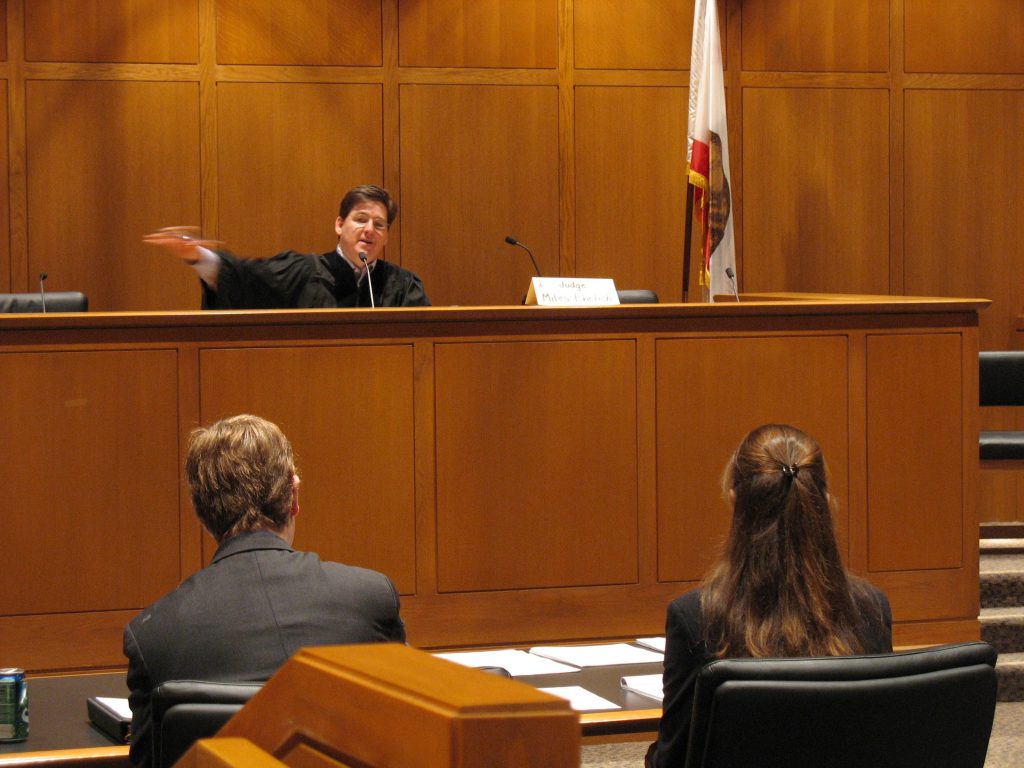Are you interested in improving your English outside of the CISL classroom? Listen to Serial, the most downloaded podcast to date! This podcast, which is about a real-life crime committed in 1999 in the United States, is an excellent (and fascinating) way to practice your English listening skills. Read our overview of the podcast to understand the story. Warning: you will be hooked!*
Before listening, ask yourself if you know the words below: they are all related to law or the judicial system. Knowing these words will be helpful when listening to Serial, but they are also useful vocabulary words if you are interested in visiting the San Diego County Courthouse. This is a trip many CISL classes take and it’s an incredible experience to see a live courtroom!
*hooked = very interested (almost obsessed!)

Law-related Vocabulary
Accuse
Definition: to charge with a crime.
We use “accuse” in two ways: passively, and actively.
Passive use: To be accused of a crime
- Example: He was accused of stealing from his company.
Active use: To accuse someone of a crime.
- Example: His co-worker accused him of theft.
Arrested
Definition: To be taken by police
- Example: He was arrested (by police) this afternoon.
To stand trial
Definition: to go through the whole legal process
- Example: He will stand trial in September.
Convicted of (a crime)
Definition: to be determined as “guilty”
- Example: He was convicted of robbery.
Sentence(d)
Definition: to receive the punishment (sentenced) or to give the punishment (to sentence).
- Example: The judge will sentence him this afternoon.
- Example: He was sentenced to five months probation.
The following is a list of people you need to know who are involved in the court system.
- Jury: a group of regular citizens who have been chosen to listen to the trial. They will vote “guilty” or “not guilty” at the end of the trial.
- Judge: the person who is in charge of the court proceedings. The judge typically decides the length of the sentence after the jury declares a person “guilty.”
- Prosecutor: the government-appointed lawyer who is trying to get a “guilty” verdict for the person standing trial.
- Defendant: the person accused of the crime; the person standing trial.
We hope you enjoy listening to this riveting podcast!
Images from Shutterstock.

